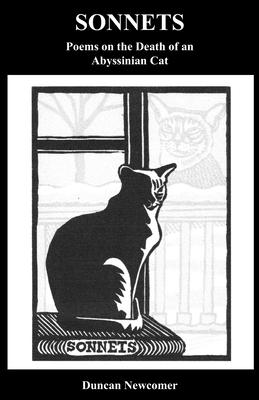Spare, raw, exquisite, these elegiac haiku speak for all of us who have lost our beloved animals.
-Eileen Sypher
The theme of an elegy. The form of a haiku. But elegies are usually not for cats, and haiku mostly have a set number of syllables.
Yet the pain of parting with your cat or your dog is both deep and unique. It is a grief most of us keep to ourselves. It is magnified because we live inside with them, and with our birds and turtles, sometimes fish and snakes. Up here in Maine, in the old days, the animal barn and the household were connected against the winter. In even older days, many of the necessary animals lived right in our dwellings as well, their warmth important for us. From gerbils to horses, we physically love and spiritually bond with animals that are not us. We rarely speak of this when they die. We don’t know what to say. They were mainly silent with us and now we are silent without them.
So, raw haiku, renegade haiku, all with the tone of elegy, might be a new form of language for an ancient grief. Try them yourself.
When my wife and I drove home from the veterinary clinic after Sonnets had stretched out her front paws and died, I was numb and silent. Some months later these awkward but apt little phrases came to me. Over some weeks there were more and more. It was like playing with Sonnets again. I decided to call them Raw Haiku.
"Duncan," writes the English professor, Dr. Sypher and the ordained minister, Rev. Eileen, "is a poet, preacher, psychotherapist, who probes with rare words of love, what few of us are able to: the raw edges of this awful grief. He makes Sonnets famous ’for sad people everywhere.’ These poems open worlds."

 看圖書介紹
看圖書介紹









